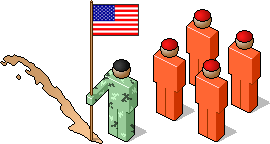
Feb. 5, 2004

The United States currently holds approximately 650 people at Camp Delta (previously Camp X-Ray), part of the U.S. military base at Guantánamo Bay, Cuba.
Classified as unlawful enemy combatants, the detainees are considered exempt from the protection of the Third Geneva Convention of 1949, which sets forth rules for the treatment of prisoners of war.1
The White House’s official position is that al-Qaida is not party to the Geneva Convention, and therefore its members are not eligible for POW status. Members of the Taliban are considered eligible because both the U. S. and Afghanistan are parties to the Geneva Convention, but they do not qualify:
The President has determined that the Geneva Convention applies to the Taliban detainees, but not to the al-Qaida detainees. Under the terms of the Geneva Convention, however, the Taliban detainees do not qualify as POWs. Therefore, neither the Taliban nor al-Qaida detainees are entitled to POW status.2
This lack of POW status for the detainees, combined with their questionable legal status — one government official described Camp Delta as the “legal equivalent of outer space” — has made it difficult to determine the identity and nationality of the detainees.3
Still, on February 4th, United Press International released the findings of a broad survey of published reports, tentatively identifying the nationalities of 619 of the 650 detainees.4
I was surprised to see that at least 36 countries were represented, but the details were awkwardly buried in the text of the article, and I wanted to see what the breakdown of countries actually looked like.
Roughly a quarter of the 650 detainees at Camp Delta are thought to be Saudi nationals:
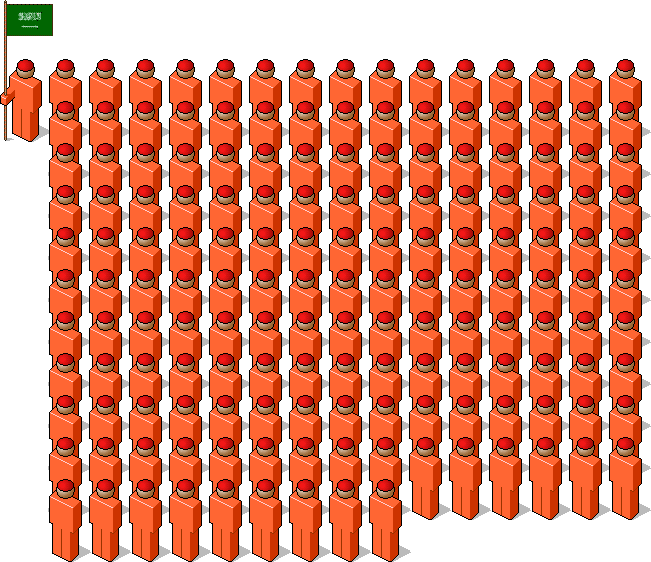
... with a further 38% thought to be nationals of Yemen, Pakistan, or Afghanistan:
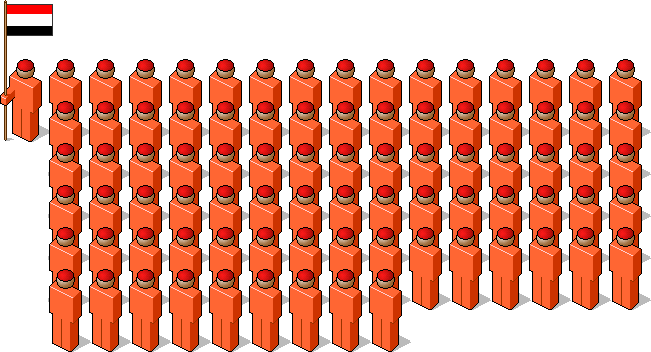
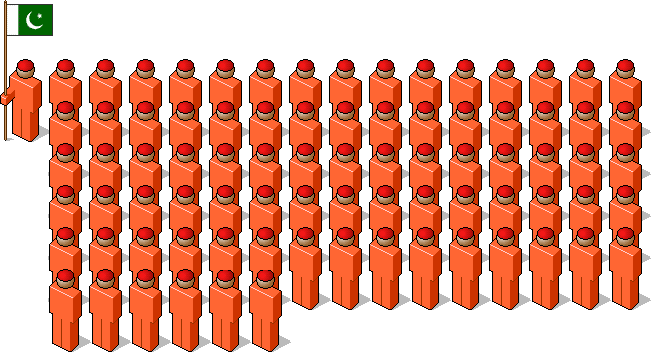
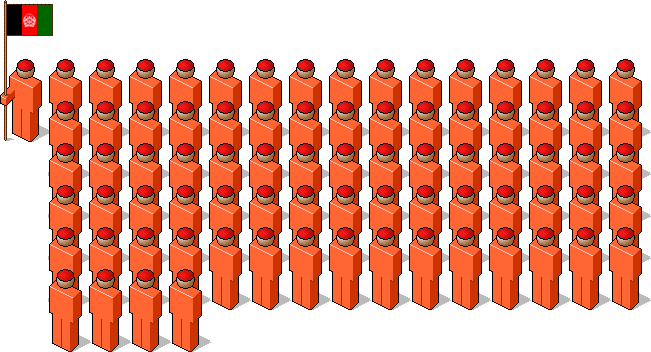
Note that the Afghani nationals above are shown with the current flag of Afghanistan, and not the green-on-white flag of the Taliban.









The British detainees are the center of much diplomatic effort, and seven of them may soon be repatriated.5




Half of the nations represented at Camp Delta count only one or two detainees:


















And the remaining 31 detainees are of undetermined nationality:

In all, at least 36 different countries have at least one detainee at Camp Delta:

Although the UPI article reports “the nationalities of 619 of Camp Delta’s inmates from 38 countries,” the numbers provided in the article add up to only 614 detainees and 36 countries. The 5 missing detainees may be due to the article failing to explicitly state the number of detainees from Kazakhstan (the graphics above assume the 619 count is correct, resulting in 5 Kazakhstani detainees).